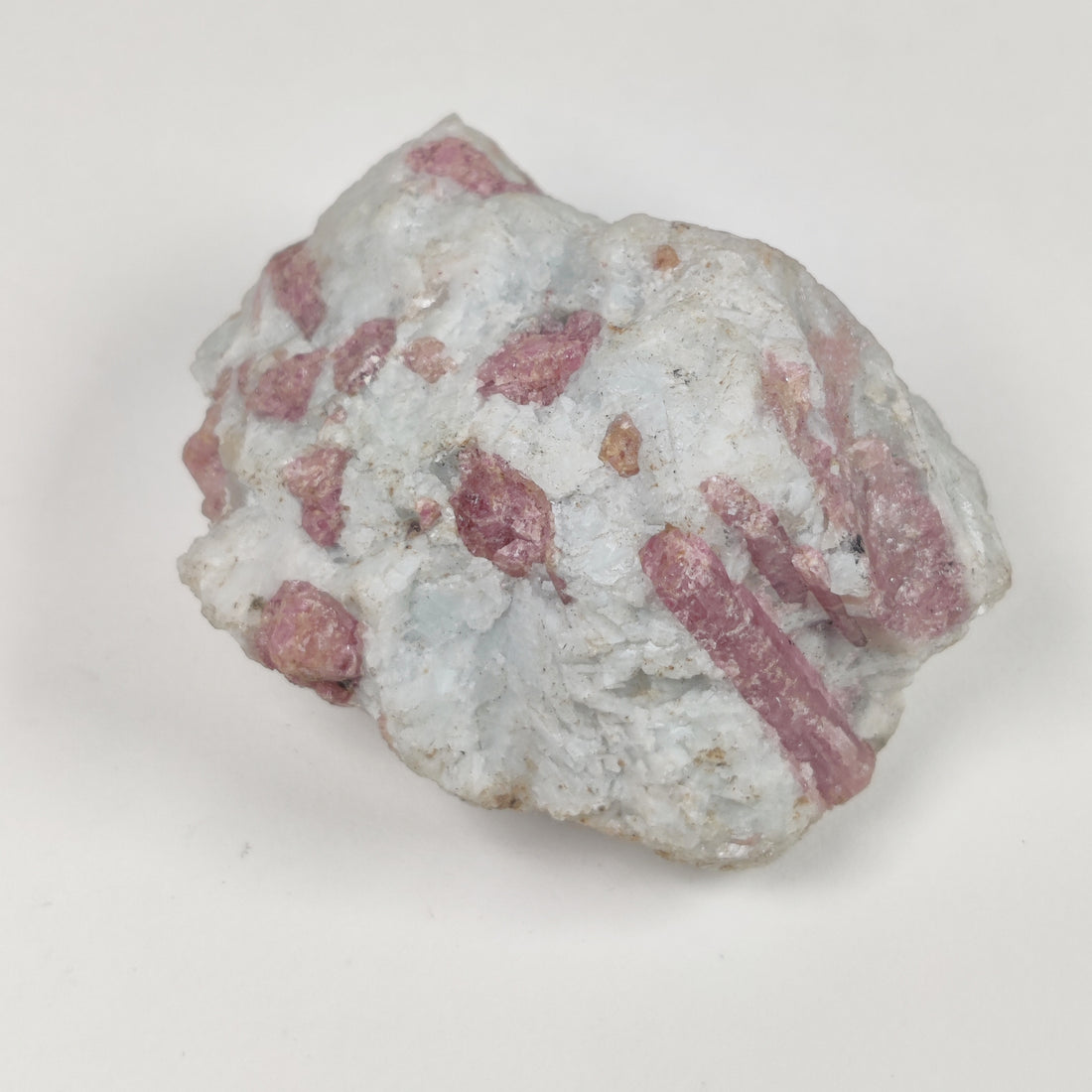|
Properties of Pink Tourmaline (Rossmanite) |
|
|
Mineral Group |
Cyclosilicates |
|
Cleavage |
Indistinct |
|
Chemical Composition |
◻(LiAl2)Al6(Si6O18)(BO3)3(OH)3(OH) |
|
Fracture |
Irregular/Uneven, Conchoidal |
|
Luster |
Vitreous |
|
Diaphaneity |
Transparent to translucent, nearly opaque |
|
Color |
Pale Pink to Colorless |
|
Streak |
White, colorless |
|
Mohs Hardness |
7 - 7.5 |
|
Specific Gravity |
2.8 - 3.3 |
|
Diagnostic Properties |
Color, streak, luster |
|
Crystal System |
|
|
Uses |
Gemstones, sculptures |
|
Chakras |
Heart Chakra |
|
Zodiac |
Libra |
|
Numerical Vibration |
9 & 2 |
|
People who struggle with anxiety, experience panic attacks, or simply need something to help them repair their inner disorder and dread place a high value on pink tourmaline. Pink tourmaline is a symbol of compassion and a desire to help others. One wears it to show solidarity with those less fortunate. Due to its ability to enhance one's capacity for empathy, this stone is particularly useful for those in the helping professions. It's a gift of friendship and love that has no bounds. Pink tourmaline, in particular, is said to emit more love than any other hue of tourmaline. All crystals contain energy that can be used to amplify your own intentions and manifestations through meditation and daily wear. |
|
|
Geologic Setting |
The most common occurrence of tourmaline is in granite pegmities, and in rocks immediately surrounding them. It is also found as an accessory mineral in most igneous and metamorphic rocks. It is stable from low temperatures and pressures to vey high temperatures and pressures. Most pegmatitic tourmaline is schorl or elbaite. |



